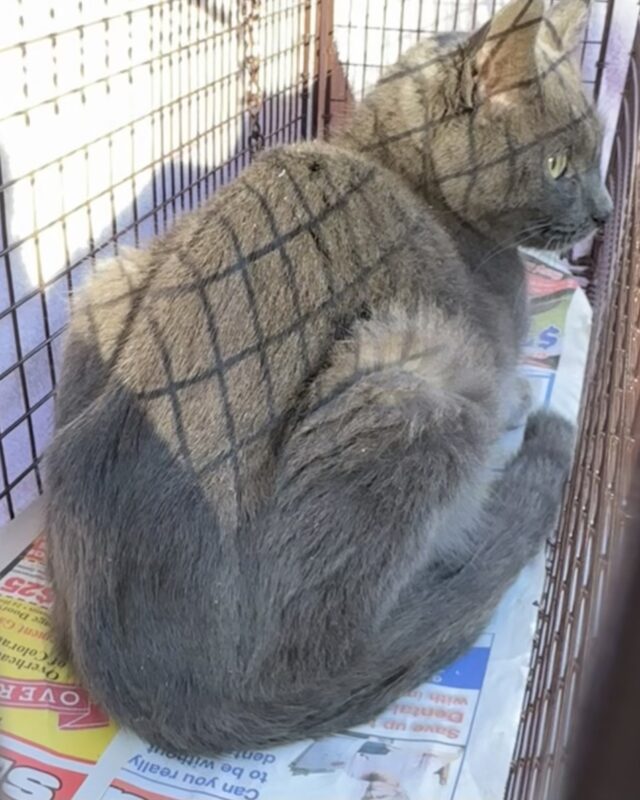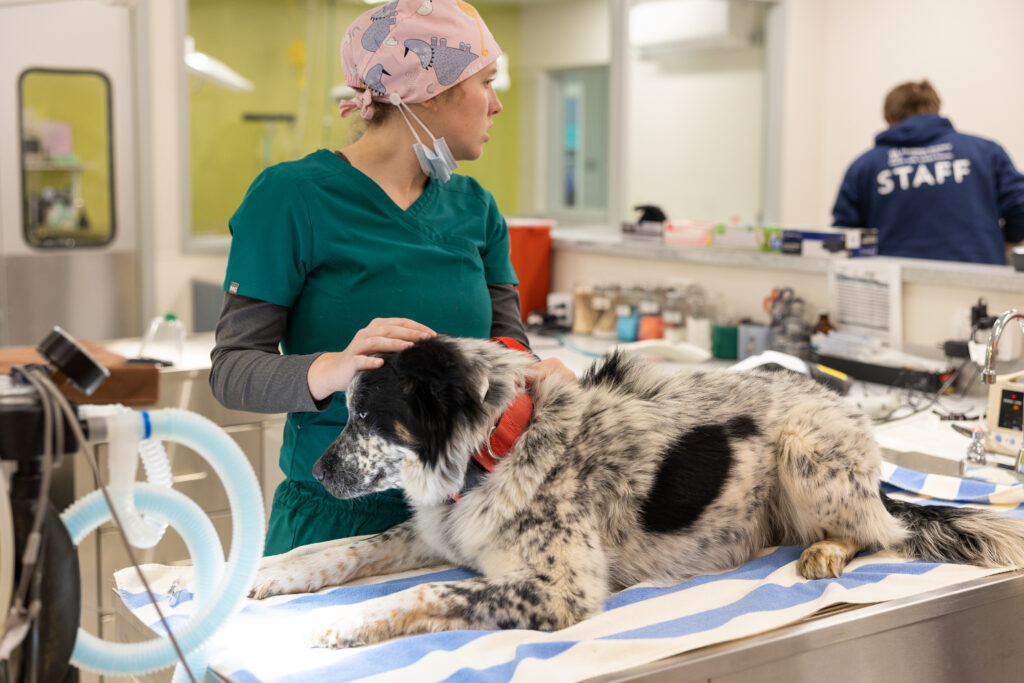
Meet Gray Lady, a gray Domestic Shorthair cat that is feral and a member of a local cat colony. One day, one of HSPPR’s colony managers noticed that she was protruding her hips out to the side and brought Gray Lady into the shelter to figure out what was going on. HSPPR’s veterinary team examined Grey Lady and determined that she had pyometra, a serious and potentially life-threatening infection of the uterus. After getting spayed and being watched closely for a few days, Gray Lady was feeling much better and ready to live her normal life again. Pyometra, though potentially fatal if left untreated, is entirely preventable through timely spaying of pets prior to the infection developing.
As pet lovers and responsible caretakers, we play a pivotal role in ensuring the well-being of our furry friends. One important way we do this is by spaying or neutering them to contribute to a healthier, happier, and more balanced pet population. In addition to reducing the number of unwanted pets, altered pets generally live longer, have fewer health problems related to reproduction, and can possibly have a reduced number of unwanted behaviors.

Population Control
Spaying and neutering help control pet overpopulation and can result in a decrease in the number of homeless pets that are brought into shelters as strays. This is an easy way for pet owners to be part of the pet overpopulation solution and prevent unwanted litters.
Medical Benefits
Altered pets tend to live longer, healthier lives. These procedures can reduce the risk of certain reproductive cancers and infections. For example, spaying female pets before their first heat cycle helps prevent uterine infections and breast tumors. Neutering male pets prevents testicular cancer and reduces the risk of some prostate problems, contributing to an overall improved quality of life.
Behavioral Benefits
- Neutering makes your male pet less likely to mark his territory or spray urine throughout the house. It also tends to decrease aggression and make your pet less likely to roam away from home.
- Female felines tend to go into heat four or five days every three weeks during breeding season. In an effort to advertise for mates, they may yowl and urinate more frequently, sometimes all over your house. This behavior can be prevented when you have your pet spayed as they won’t go into heat at all.
Financial Benefits
In addition to the medical benefits of spaying/neutering your pet with hopefully fewer visits to the vet, it is also highly cost-effective! The cost of your pet’s spay/neuter surgery is far less than the cost of having and caring for a litter of puppies or kittens.
If you adopted your pet from Humane Society of the Pikes Peak Region, they already went home with their surgery completed. If your pet did not come from HSPPR, we are proud to offer a spay/neuter program to help reduce pet overpopulation and save more lives. You can find more information and schedule an appointment HERE.









